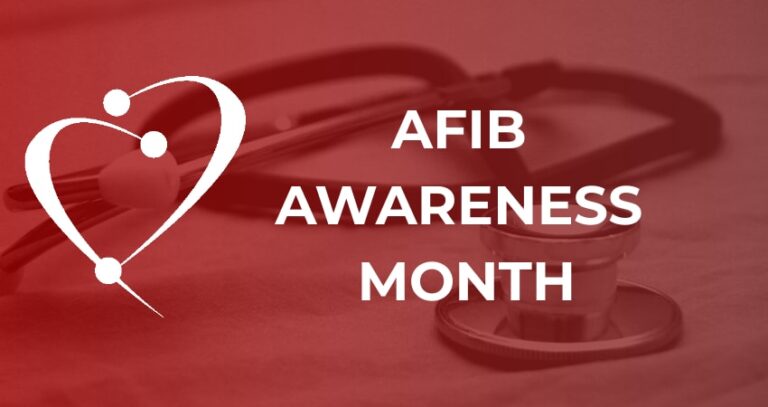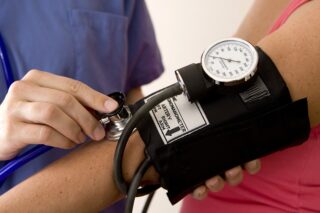
September is Atrial Fibrillation Awareness Month, which serves as a way to help patients and healthcare providers learn more about this complex condition.
AFib is an irregular heart rhythm that increases risk of stroke fivefold and doubles the risk of heart-related death. More than 2.7 million Americans have AFib, according to the Centers for Disease Control and Prevention (CDC), but many go undiagnosed because this condition often has no symptoms. Raising awareness of AFib is important to help prevent this irregular heartbeat and promote heart health.
Risks Factors of AFib
Atrial fibrillation doesn’t always have noticeable symptoms, so it’s important to know the factors that can put you at risk:
- Prior heart attack or heart disease
- High blood pressure
- Diabetes
- Sleep apnea
- Excessive smoking
- Alcohol
- Prolonged athletic conditioning
If you display any of these symptoms or risk factors, it is recommended to see a cardiologist or electrophysiologist for screening. Remember, whether you have no symptoms of AFib or have taken steps to treat a risk factor, you are still at an increased risk for stroke and other heart disease. Even if you receive medication, there could already be some damage done to your heart.
In addition, you should be mindful of “triggers”, which are activities that may lead to an episode of AFib. Some people can feel or suspect that they are about to have an episode of the condition, but many people can’t. Either way, it’s important to be aware of and limit potential triggers. Here’s a list of most common AFib triggers:
- Excessive alcohol consumption
- Stress or anxiety
- Poor sleep and/or sleep apnea
- Energy Drinks
Avoiding these things can prevent an AFib episode.
AFib and its Risk For Stroke
Due to arrhythmic beating of the heart during an AFib episode, blood can become static in the chambers of the heart. This is because the heart valves are opening and closing too fast for blood to get through, causing the blood to pool in the heart, particularly in the left atrium. When the blood pools, it is prone to form clots, and cause a stroke when the clot reaches the brain. People with AFib are 5 times as likely to have a stroke.
There’s a simple mnemonic that is known as F.A.S.T, or Face drooping, Arm weakness, Speech difficulty, Time to call 9-1-1, that can help you recognize the signs of stroke. Sudden sensations of numbness, confusion, difficulty in seeing or walking, or severe headaches with no known cause could also be signs that you or a loved one is suffering from a stroke.
Talk to a Doctor Today
If you have more questions or want to get involved with AFib Awareness Month, speak with one of our care coordinators today. Our team of electrophysiologists or EP doctors at Heart Rhythm Consultants can help address your concerns and provide more information regarding the latest AFib treatments.



